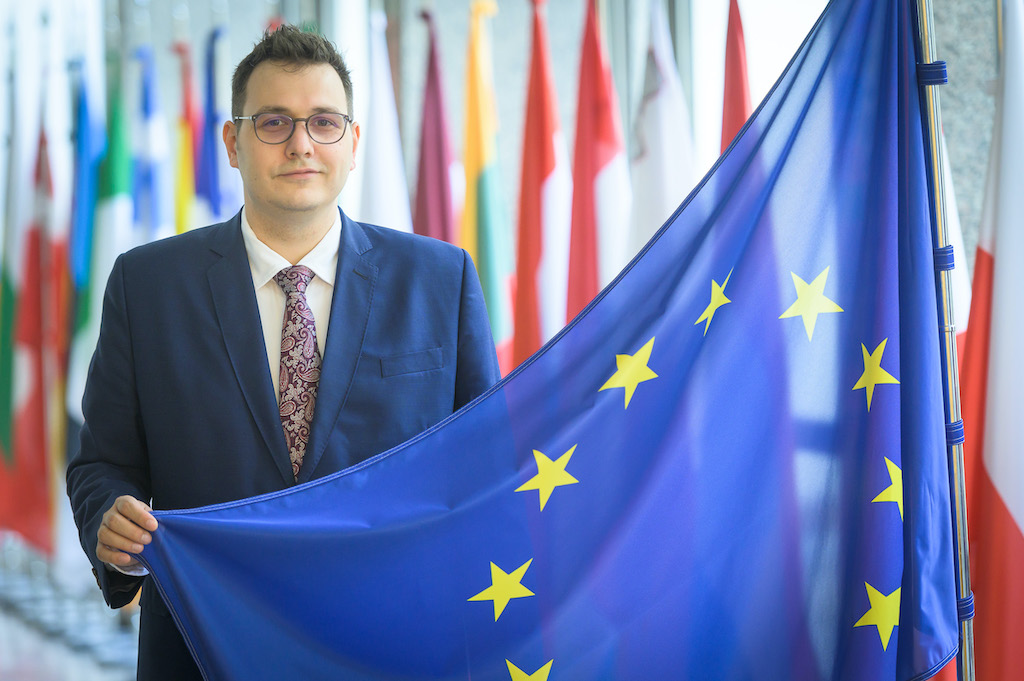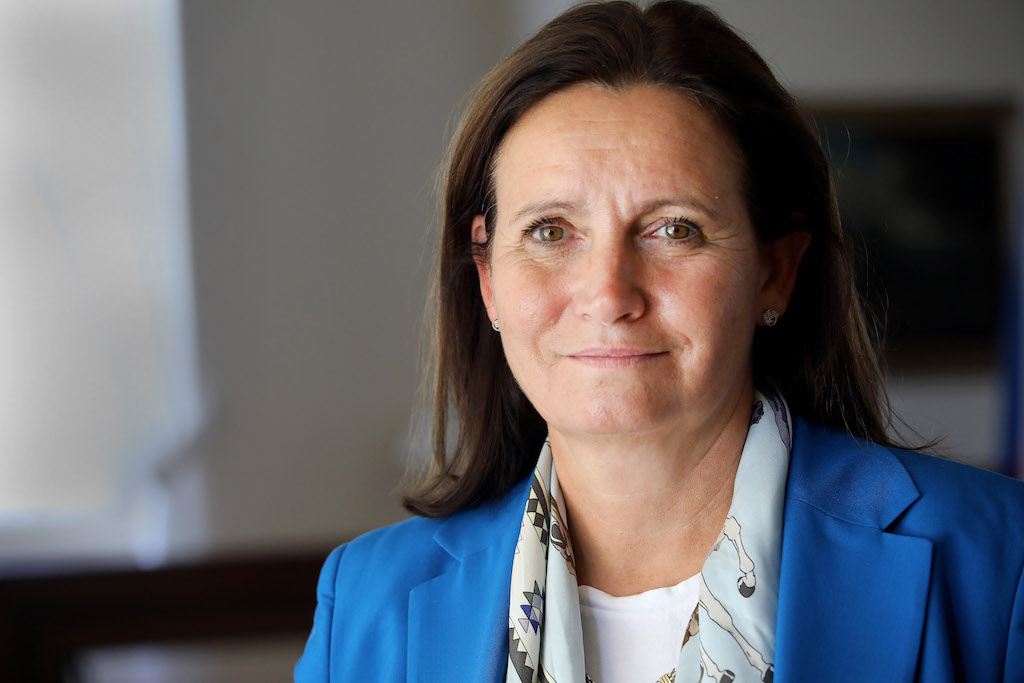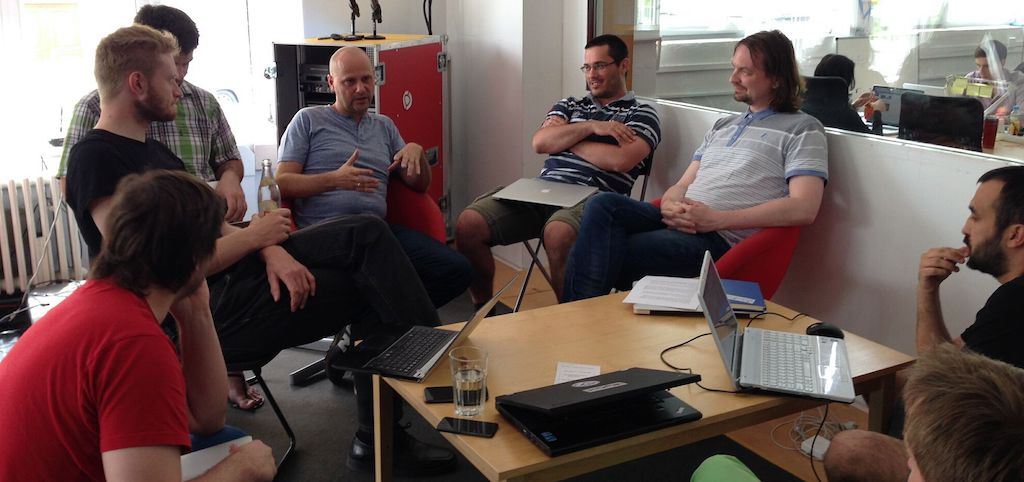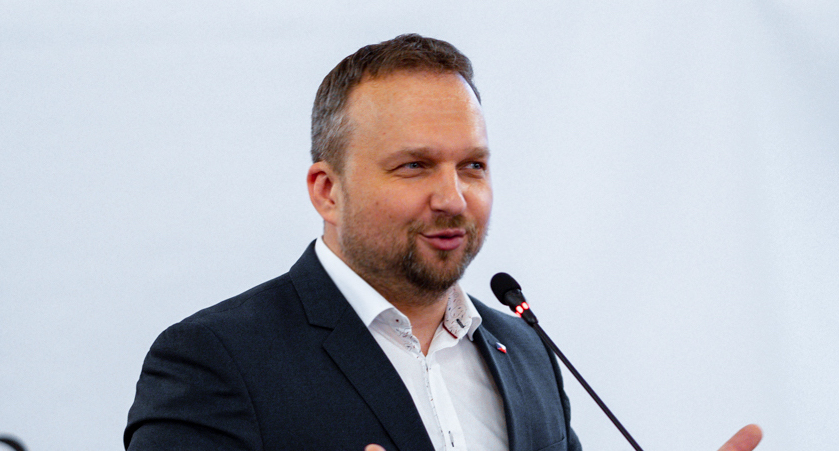
Questions from MEPs:
Eva MAYDELL, Group of the European People’s Party (Christian Democrats):
How can more companies use AI?
Regarding the regulatory sandboxes, how can they be improved by the Member States so that SMEs can use them?
Cédric. O: I think you’re pointing to a key point, making sure that European companies adopt the AI issue more quickly. I think we have to work on two tracks, first the start-ups because they have much more natively recourse to AI, we have to emerge Startup based on AI, Secondly, I think we have a huge challenge, which is the ability for SMEs and also large European companies to adopt this issue of AI, and there is necessarily work to be done with professional organisations, with the chambers of trades and crafts, with the chambers of commerce and industry and all the professional organizations of employers. Finally, I think there’s a training issue, the first bottleneck we have, is that we don’t have enough people trained in AI in Europe, so there’s virtually no staff available for SMEs and TPE.You mentioned the issue of regulatory sandboxes, which is essential, and that’s one of the things we’re bumping up against in the implementation of the GDPR, which is a real political victory but could be improved, we need to ensure that the rules that apply to a startup are not the same as those that apply to a very large company if we want to ensure that the adoption of AI in the European Union progresses.
Ibán GARCÍA DEL BLANCO, Group of the Progressive Alliance of Socialists and Democrats in the European Parliament:
What is your point of view and that of the French Presidency and your vision on the proposal of the European Commission and what are the gaps and what could we improve? And to be more concrete, regarding the democratization of the process, what can we do? how can we manage to get to a situation where people are aware of the importance of this subject and then how can they make decisions in this direction, because I think it would be a mistake to make this change in our society without relying on the information of experts.
Would it be important to have a coordination body at European level in order to better cement the internal market and ensure a good start-up of the process, which is directly linked to Europe’s competitiveness power but also to respect citizens’ rights?
Cédric. O: First of all, a little “disclaimer”, France being President of the Council at the moment, it is difficult for me to answer France’s position, since the Council has no position at this stage. But I will try to answer your questions.
In terms of the regulations, I think they’re balanced today, but the devil is in the details, and there are two extremely important elements, the issue of the sandboxes and the issue of standardized implementation. Secondly, and here I think you are touching on the issue of democratization, the main challenge facing our society today. I used the example of rail, and I think today
Our society is based on a digital technology, on vaccines whose rates of rupture and development are very fast and which leaves out a whole segment of our population, whose problem is not that it understands or knows how to code AI algorithms, the problem and that it does not understand the grammar of this World, yet ignorance creates fantasy and defiance. I believe that within the European Union the main technological, economic but above all democratic challenge is to make society and to improve the technical culture of all our populations and this requires education. As regards your last point, on coordination at European level, it is difficult for me to answer the Council, which has no position, but if you draw a parallel with the Digital Services Act, there are proposals from the Council on the coordination of implementation that might in some way inspire AI regulation.
Svenja HAHN, Renew Europe Group:
It was very interesting to hear the numerical priorities of the French Presidency, could we also talk about the regulation on AI, because there was some problem, We know that the French Government is in favour of the use of facial recognition for crime prevention services, while others consider it a violation of fundamental rights, especially in Germany. I think we need to support innovation, and I don’t think France wants to violate fundamental rights. However, I see a general problem in surveillance and in the use of AI in this area, some Member States have more fragile systems, including two neighbours of Germany. I would like to know how the French Presidency wants to reconcile these points of view which are very far apart? it also seems that there is confusion about what biometric recognition of public spaces is, how can we ensure that digital technologies are not hijacked by governments to control and for purposes that would not be wanted?
Cédric. O: I think you’re touching on one of the most sensitive points in the AI text, one of the points that could make it fail or at least prevent it from thriving. I would like to correct one of the points you mentioned: France is not in favour of indiscriminate facial recognition, There is very little facial recognition in France, and today the framework is set by the National Informatics and Freedom Commission. There are debates on the subject in France obviously, but at this stage there is virtually no deployment of facial recognition in France. The state of the debate is quite close to that of Europe.
With regard to the regulation, I think we have to differentiate between two issues, what is a European regulation and what is a matter of state sovereignty. As regards questions of intelligence or public order, it seems to me that this is a matter for the sovereignty of the States as long as they are linked to the values of Europe. This is the scope of AI regulation.
The second question is about technology, I can’t elaborate on this in a few minutes, but facial recognition doesn’t mean anything, are we talking about authentication or are we talking about identification in the public space? In France, for example, the Commission informatique et liberté considered that using algorithmic software to see if people wore masks in the metro in a statistical way was allowed. What do we do with the cameras that are on the autonomous cars? How do we deal with crowd movement reconnaissance? I think the issue of facial recognition, even the term facial recognition obfuscates the debate we can have about which protocols are really at risk and which protocols are not problematic given their design and the way they were designed and computer architecture.
Kim VAN SPARRENTAK, Green Group/European Free Alliance:
The analysis of some system makes that we have doubts, some AI system does not apply to all citizens, How will we use the various systems that exist at European level to guarantee the protection of fundamental rights and allow all companies to play on equal terms?
Cédric. O: The fact that the Council is not yet in a position makes it difficult for me to answer you and to comment on the substance of the proposal. I’m going to repeat myself a little, regarding our need to find this peak line between innovation and regulation and whatever level of regulation we choose, it has to be unified on European territory.
Gilles LEBRETON, Identity and Democracy Group:
I regret that you are not physically present, of the three ministers I have heard you are the second, I find that it gives a bad image of the Presidency of France. I would like to ask you about the creation of a European digital identity, which is a Commission project that you support. According to this project, each citizen will be able to prove his identity by clicking on his smart phone and thus do operations throughout the European Union, do you think that this could represent dangers?
Cédric. O: On European digital sovereignty versus French digital sovereignty I still think that there is an extremely important link in this matter. It is illusory to speak of French digital sovereignty when the GAFA invest 40 billion in AI alone each year, France as a whole in public and private R&D invests 60 billion in all sectors, so if France wants to be at the rendezvousThe European Union will not be able to guarantee competitiveness and sovereignty unless it forms an alliance with the European Union, so there will be no French technological sovereignty without European technological sovereignty. As regards the social control that Europe intends to carry out through the single European identity, I would say first that it depends on my colleague Amélie de Montchalin and secondly that the answer being in the question, it seems to me, I will leave you to your considerations.
Adam BIELAN, Groupe des Conservateurs et Réformistes européens :
Il y a trois jours, 12 états européens, y compris la France et la Pologne ont publiés un manifeste conjoint indiquant qu’ils ne voulaient pas lutter contre la Commission dans le cadre d‘un projet portant sur l’informatique dans le Cloud pour arriver à une technologie européenne. Ceci relève des priorités de la présidence française, pour une Europe plus souveraine, pourriez-vous nous donner quelques explications quant à ce projet qui semble très prioritaire pour la présidence française ? La normalisation est très importante pour la compétitivité de l’Europe. Nous lançons un appel au niveau européen pour normaliser en collaborant avec d’autres partenaires, quelle est le point de vue du Conseil sur cette stratégie et sa mise en œuvre ? une régionalisation excessive des normes d’IA pourrait entraver la compétitivité européenne étant donné que les technologies ont un impact mondial.
Cédric. O: I see several points in your question, the first one is about the IPCEI Cloud which several countries of the European Union are currently engaged in, I think the Cloud is one of the topics on which we absolutely need to catch up. It’s a structuring technology, and we’re way behind the Americans, and we all have to get back in the game. There is this 7 billion euro IPCEI project which brings together 12 European countries and France wants to make sure that, for the benefit of a number of technological revolutions such as ‘H computing’, it catches up. The second, and I fully agree with you about the uniqueness of the European market in terms of standardization, is something I mentioned in the context of AI, and I think the same is true for the cloud. But if we want to be able to unify the European cloud market, the first thing we need to do at the state level, of the Commission and the Parliament is to unify our reading of what structures the issue of the Cloud which is today the ‘RECHREM2’ of the Court of Justice of the European Union. Will European companies have the right to use the service provided by American hypermarkets?
Sandra PEREIRA, The Left Group in the European Parliament – GUE/NGL:
Digital change could lead to imbalances and a monopolistic concentration of certain activities and attack the sovereignty of peoples, wages and employment, what do you think?
Cédric. O: From my previous experiences at Safran, and especially at the bottom of the scale, I believe that digitization and automation are an essential factor in combating the arduousness of many tasks that today contribute to the difficulty of the jobs that are at the very bottom of the scale.
Ernő SCHALLER-BAROSS, Non-attached:
Data are essential in the development of AI, the Hungarian government has started a large-scale work on this data economy, In establishing the framework of the digital economy the Hungarian government said that data is a legal asset, this is necessary to process the nature of data and be integrated into commercial law. Does the French Presidency see an opportunity to support this definition of data in the context of AI and digitization in general?
Cédric. O: Key topic in the philosophical and ontological debates of the digital economy, which is that of data ownership. My answer will be quite pragmatic, we have the RGPDA was adopted with the DSA, as well as the DMA, tomorrow the regulation on the IA, the DATA ACT to be presented by the Commission. We have the opportunity to put on the table the regulations and the most important democratic legal framework of value in the history of the internet, and Europe will be a forerunner in this matter. I’m interested in the debate about ownership of data, but if we get into that debate, it’s going to take us a long time to get out of the complexity of it. My priority is to bring the texts on the table to fruition and progress. But I think the issue you’re raising needs to be addressed, but it’s going to take a long time.
Axel VOSS, Group of the European People’s Party (Christian Democrats):
How do you see the future of digitalization and AI, in order to be more competitive at the global level, Should we not unite our efforts to be competitive and launch more Community projects to increase the size and create a tendency throughout the European Union to go further?
Cédric. O: I’m pretty close to your approach, the leader sets the standard, we lack a leader, so we run after, through regulation to correct effects that are those of the fact that today those who set the standard on principles of law, value principles that are Anglo-Saxon or Chinese principles. So the main thing we have to do today is to bring out leaders, and those leaders will come from startups mainly. And so we have the obligation and the approach that we have to have is how do we emerge tomorrow 1, 2, 3 4 or 5 very large companies that will be of the size, maybe not of the GAFA, but of that of UBER AIRBNR, capable of investing in a significant way. The technological solution will come from the private sector, because only the private sector can put the necessary amounts on the table.
Alexandra GEESE, Green Group/European Free Alliance:
A specific question regarding the Council’s work on AI legislation, excluding the Council’s version of this text all purpose-defined AI systems (general purpose), these systems are for example the major language systems which are the basis of many AI tools on which European companies are working. This means that European companies would still be responsible and would have to comply with the AI legislation, which says for example that data cannot be biased, which data must be representative and there are a series of other requirements. But why do you exclude the general objective systems from the scope because we know that the GPT3, the major linguistic models have biases in relation to women or people of colour. Why should European companies be responsible when those that produce the basis of what the work of these European companies is based on are not responsible, could you explain that to us?
Cédric. O: I’m not sure I can technically answer the question you’re asking me. The exclusion of standards from systems of general application.
Maria-Manuel LEITÃO-MARQUES, Group of the Progressive Alliance of Socialists and Democrats in the European Parliament:
In the United States, there is a “National AI Initiative Office” to pool public and private resources to drive and drive innovation. Can we do the same thing in Europe? And how to push the construction of European data spaces by taking advantage of the huge amount of data stored in our public institution?
Cédric. O: I would go back to an exchange I had with Eric Schmitt, a former Google boss, who was asked by Congress to think about the US AI strategy. His obsession was not to be downgraded by China and therefore to do everything to maintain American supremacy. What should we Europeans think, when the Americans are worried about China.
Dragoş TUDORACHE, Renew Europe Group:
Digital governance?
Cédric. O: The digital and digital decade is a good thing, and I would like to commend the work of Thierry Breton, Margrethe Vestager and Ursula Von Der Leyen, in the desire to push the countries of the European Union to move more towards digitalisation within the framework of the recovery plan, of research, because it is essential for the unity and future competitiveness of Europe.
With respect to governance, there is a model emerging from discussions within the DCM and ABM that is, more integrated governance for two reasons: one which is the unity of the internal market and another reason linked to the fact that we have to deal in general with extremely powerful regulators whose turnover, technological power sometimes goes beyond those of a single State, and so in this context the unity and the capacity for us to have a powerful interlocutor, the Commission is one of them. It seems to me that this is a good way to go, but I could not go much further given my institutional position.
















